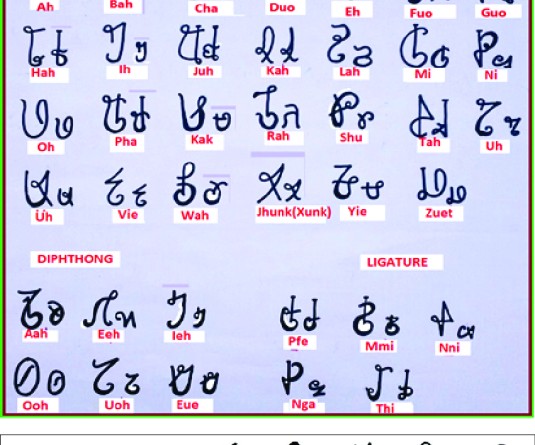
The institution (origin) of Gaon Burah, Village Chief/Headman which has survived all weathers since its inception from the days of British Indian rule. The first British Headquarter to administered Naga Hills was established at Samaguting (now Chümoukedima) in 1866, and later shifted its Headquarter to Kohima in 1879. The British administration introduced GB institution in the year 1886 under the Regulation Act of Assam Land & Revenue, when Nagaland was under the administration of Assam as a hill district.
The main objective of GB establishment (institution) is to represent the village and the government administration in the form of an entity to execute activities and assist as a medium of link between the people and the government machineries. This tradition is efficiently continuing with appropriate standard norms for the GBs as agents representing the grassroot people in the daily affairs of law and order in the urban/rural areas in collaboration with the district administration, law enforcing agencies and other government departments.
The name “Gaon Burah” is a Hindi/Assamese words which means Elderly Man/Village Chief of the village, a respect/honour addressed given by the Britishers who were directly responsible for the village administration. Moreover, GBs in Naga context is a legal and constitutional entity that functions as per the Naga Customary Laws and Practices envisaged in the Article 371(A) of the Constitution of India. Gaon Burah’s are the Constitutional Custodians of the Naga Customary Laws/Court, both in towns and villages in Nagaland.
State of Nagaland, attaining the status of statehood on 1st December 1963 along with a special constitutional provision rights for the Nagas under Article 371 (A) in the constitution of India. In this respect, apart from other special constitutional rights, the Customary Laws and Practices guaranteed is one clause precisely under the usage of the GBs as custodians in Nagaland state. Furthermore, the culture, tradition and customary practices of the Nagas will remain the same and will be undoubtably pertinent to the Naga indigenous people whether residing in town or village. Theoretically the importance of the rights of article 371 (A) are being articulated, however, in practical the rights are demeaned and made to become redundant by non-other than the Naga people itself. In the same way, GB institution being established in the late eighteen century whose functioning structures are incorporated with the customary laws and practices since ages must not be contemplated to change or abolish in any given conditions. Apart from normal duties and responsibilities, GBs play a crucial role in times of critical law and order situations notwithstanding its own safety in the interest of peaceful atmosphere and more importantly in protecting people’s life. Quoting the words of MLA Dr Sukhato Sema, “I consider GBs as the source, protectors, interpreters and custodians of the Naga Customary Laws, Practices and Traditional values”.
With the passage of time every district has progress to township and are functioning under Urban Local Bodies (ULBs) system. Thus, this implies that the customary laws and practices are no more relevant and applicable to those Nagas residing in towns? Similarly, is it to be taken that GBship has become irrelevant and need do away just because the terminology is referred as ‘Gaon Burah’. In this issue, the stand of GB Union Dimapur is that, since time immemorial every Naga indigenous citizen of Nagaland state be it in urban or rural areas are part and partial of Naga Culture, Tradition and Customary Laws and Practices which are inalienable identity of the Nagas. The profound customary laws and practices system of the Nagas itself bound both rural and urban GBs under one umbrella/nomenclature and are authorized constitutional custodians in all Naga inhabited areas of the state. In this context no individual or groupon the pretext of modernization must not try to alter the legacy which is unsurpassed Naga identity and history.
On the other hand, it is to be made clear that only indigenous GBs have the legitimacy to utilized Naga Customary Laws and Practices under Article 371 (A). However, there are other non-Naga communities settled in urban areas having colonies may be given the designation; Pradhan or Mukhiya as agents of district administration representing their community/locality with proper guidelines/rules to be strictly adhered.
From the times of our forefathers, Nagas have survived and live a dignified life to which we take pride because we are from the blood line of race that is brave, honest, truthful and hard working. The culture, tradition and customary practices of our forefathers were one of the best unwritten forms of democracy system acknowledged by the most advanced people, the British. With the dawn of modernization, Nagas has become too much engrossed in westernized character/mindset that, we begin to lose the good values and revered cultures of our forefathers which were once regarded as the most treasured essence of the Naga heritage. It will be a great folly in trying to negate or question the legitimacy of Naga culture and customary laws/practices to become a non-applicability in any part of Nagaland is tantamount to total denial of Naga identity, ownership and existence. What we need today is to restore back our true identity lest we become people without culture (customary laws) which were perceptively referred and mentioned in Naga memorandum to Simon Commission, British India, 1929 by our past leaders. We cannot afford to be self-seeking on a certain issue alone and suffer in the greater nucleus matters related to the Naga legacy.
GB Union Dimapur- Media Committee: W Kholie Kapfo (GB), Convenor; Hotoshe Sumi (GB), Secretary; T. Onen Jamir (GB), Member; Yanbothung Kikon (GB), Member; Taku Longkumer (GB), Member; Luikang Zeliang (GB), Member.




